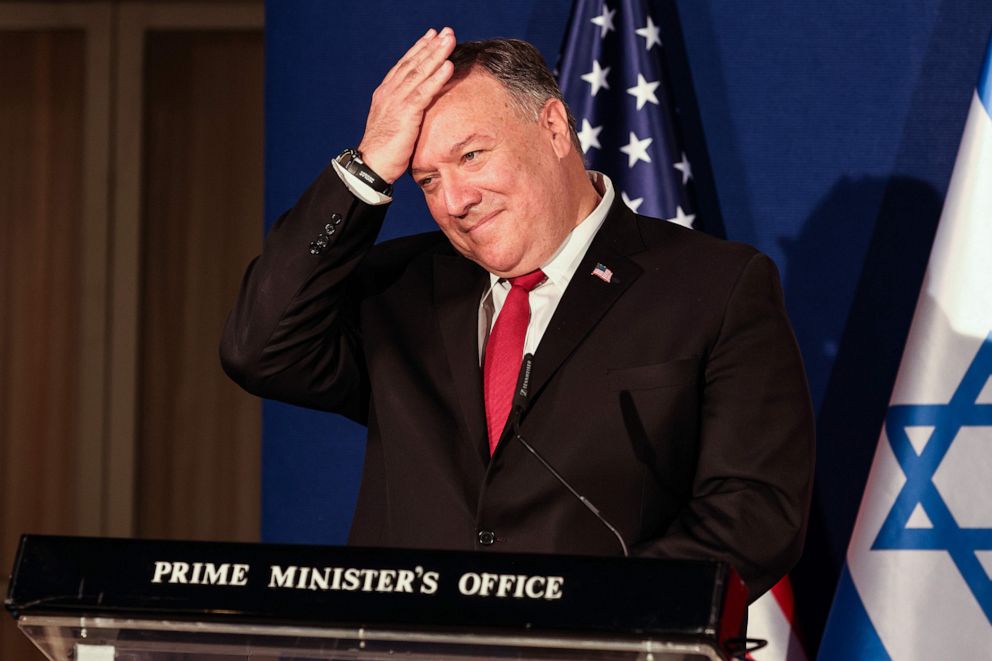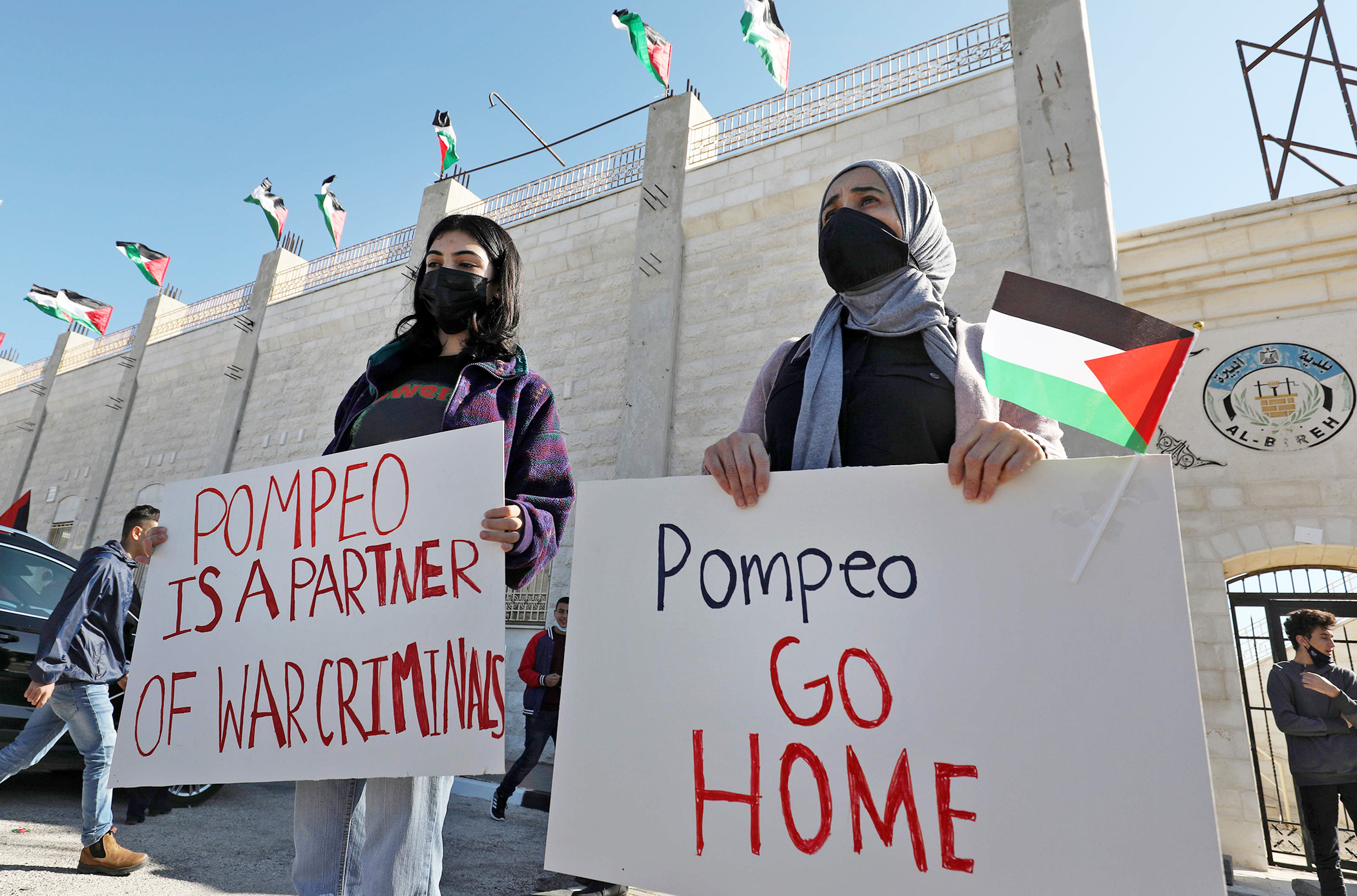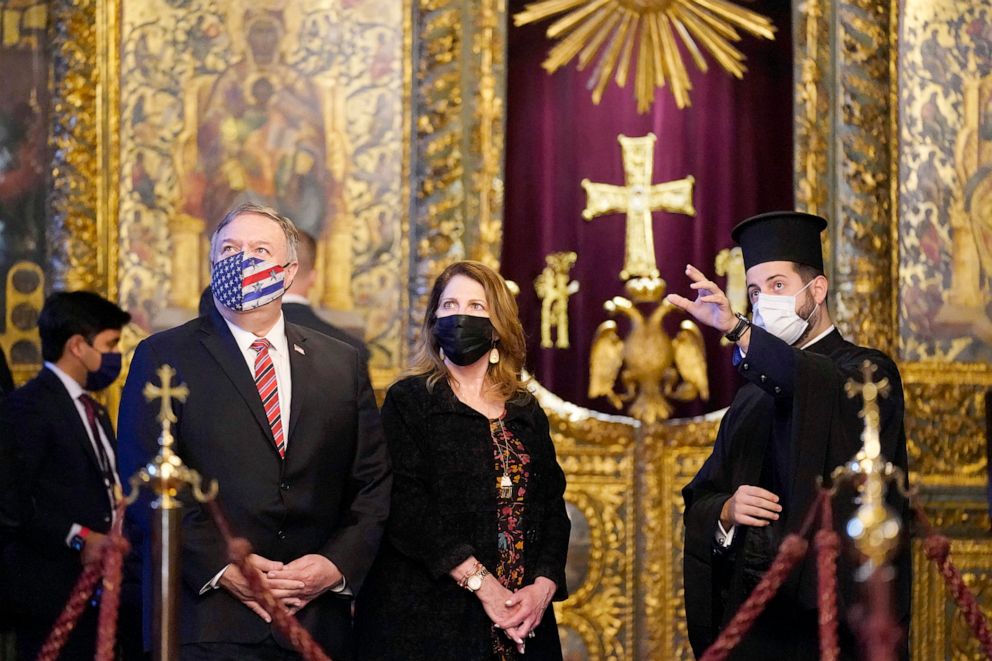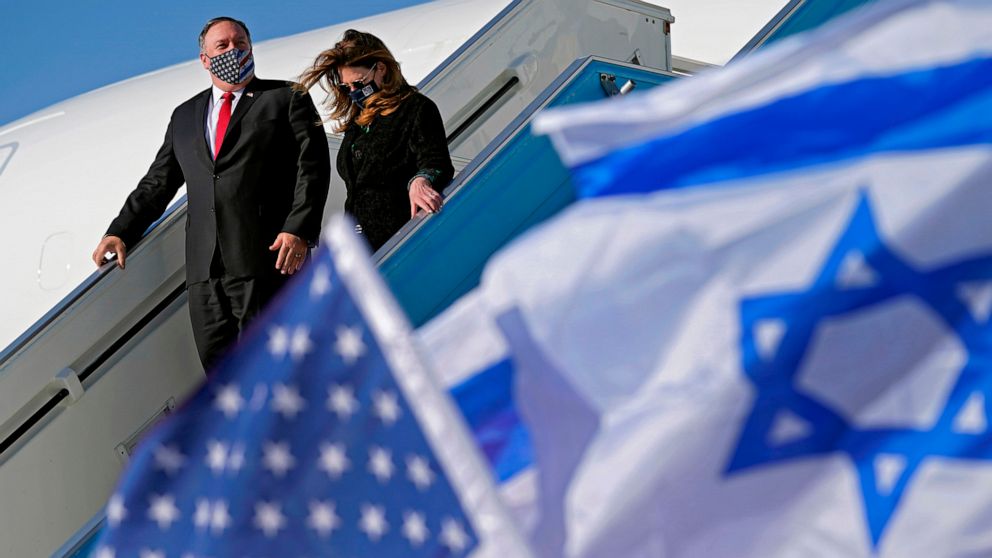Pompeo, on global trip, pushes business as usual as State Dept. blocks Biden transition
With just over two months left in the Trump administration, Secretary of State Mike Pompeo is traveling -- and acting -- as if there's no end in sight.
The top U.S. diplomat is on a 10-day trip through seven countries, whose leaders have all recognized Joe Biden as the next U.S. president -- even as Pompeo has refused to.
Instead, Pompeo has been at the forefront of a blitz of foreign policy activity to fasten President Donald Trump's legacy on a few key fronts, especially cementing hard stances on Iran and China.
But while that sweep of new sanctions and other tools unfolds in the coming weeks, Pompeo's State Department is not stepping into perhaps its most important role in this pivotal moment -- assisting the transition.

"There will be a smooth transition to a second Trump administration," he said with a smirk last week when asked about engaging with Biden's team.
Federal agencies are prohibited from working with the incoming administration until the Government Services Administration officially certifies that Biden is the president-elect, which the little-known agency has refused to do so far.
That means the department's top officials can't be in touch with Biden's foreign policy advisers and its resources can't be used by the transition team, including the operations center that would normally connect calls between foreign leaders and the president-elect. Instead, the Biden transition has relied on one senior staffer to arrange calls with 15 world leaders so far, according to a source familiar with their arrangement.
There has been no guidance to all diplomatic posts about how to discuss the election results, including whether to even refer to Biden as president-elect, two State Department sources confirmed to ABC News last week.
"The politicals [political appointees] refuse to acknowledge anything has changed," said one of the sources. "It's pretty typical - if they don't acknowledge something, they can pretend it didn't happen."
The State Department did not respond to questions about the transition. But a spokesperson told ABC News last week, "It's been made very clear that we still have work to do at the Department, and everyone should stay focused on the mission."

That was the message from Pompeo to political ambassadors after Election Day. In a call that excluded career diplomats, Pompeo told U.S. envoys that were appointed by Trump to carry on with their work, a source briefed on the call confirmed to ABC News. It's unusual for a secretary to provide guidance only to political appointees.
The department spokesperson didn't confirm the call took place, but added, ""It's also not unusual for the Secretary to pick up the phone to call staff and leadership throughout the Department."
Pompeo has also ignored the transition in his meetings with foreign leaders. In France on Monday, he met with President Emmanuel Macron and Foreign Minister Jean-Yves Le Drian. During those meetings, the transition was not discussed, according to a senior State Department official and a French official, who added they have to "stick to 'one president at a time.'"
Four days into his trip, Macron and Le Drian were the only government officials Pompeo had met while traveling. He and his wife Susan arrived in Paris on Saturday, but had no public events until Monday morning. As of Wednesday, he's now also met with senior leaders in Georgia, the former Soviet state, and in Israel.
Pompeo has also not taken any questions during the trip so far, although he has made brief remarks alongside Georgia's prime minister and with Israel's prime minister and Bahrain's foreign minister Wednesday.
In Turkey, Pompeo didn't even meet Turkish officials. Instead, he met several religious leaders Tuesday, but not Turkish President Recep Tayyip Erdoğan or Foreign Minister Mevlüt Çavuşoğlu, who reportedly refused to meet with him unless he traveled to the capital Ankara.
Senior State Department officials told reporters that Pompeo didn't snub them and blamed scheduling conflicts. But Turkish officials criticized Pompeo's "religious freedom" focused visit as "irrelevant." A handful of protesters chanted "Yankee go home!" in Istanbul Tuesday.

Tensions between Turkey and its NATO allies have climbed higher in recent months, including over competing maritime claims between Turkey and its neighbors Greece and Cyprus, Turkey's deployment of the S400 Russian missile defense system against U.S. wishes, and Erdoğan's verbal attacks on Macron.
Instead, Pompeo toured the beautiful, historic Patriarchal Church of St. George and Rustem Pasha Mosque and met the Ecumenical Patriarch Bartholomew I, leader of the Eastern Orthodox Church, and Archbishop Paul Russell, the top Vatican official in Istanbul.
"Mike Pompeo's extended second honeymoon with his also corrupt wife is not going well," tweeted David Rothkopf, CEO of The Rothkopf Group and former editor of Foreign Policy magazine. "Note: You're paying for this ridiculous trip."
Amid the flurry of Iran-related activity and the Mideast trip, critics say Pompeo is missing in action on other big issues. As fighting in Ethiopia threatens to spiral into civil war, Pompeo has not yet called the country's prime minister, leaving that to his top diplomat for Africa.
"We need principled leadership on this @StateDept. @AsstSecStateAF Please and fast," tweeted Susan Rice, the former Obama national security adviser who is a leading contender to replace Pompeo as secretary of state under Biden.
The U.S. was also not part of the negotiations to end six weeks of fighting between Armenia and Azerbaijan over the disputed territory Nagorno-Karabakh. Instead, Russia finally brought the conflict to heel by urging Armenia to accept defeat and hand over pockets of land to Azerbaijan -- a resolution that risks longer-term problems and sends a troubling message about seizing territory through force.




